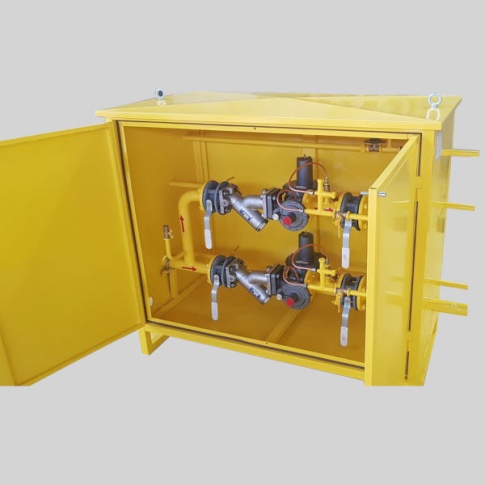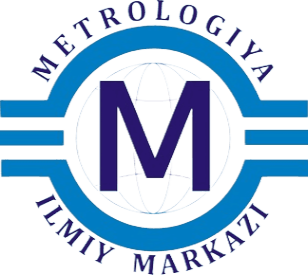Metrologiya — o‘lchovlar, ularning bir xilligini taʼminlash usullari haqidagi fan
Metrologiya — o‘lchovlar, ularning bir xilligini taʼminlash usullari va vositalari hamda talab yetilgan aniqlikka yerishish yo‘llari haqidagi fan.
Metrologiya turli o‘lchovlar (chiziqli kattaliklar, massa, sig‘im va boshqalar), shuningdek, turli mamlakatlarda ko‘llaniladigan tangalar va ular orasidagi nisbatlarni bayon yetuvchi fan sifatida ifodalangan.
Metrologiya yuqori aniklikdagi fizik tajribalarga tayanadi, u fizika, kimyo va boshqa tabiiy fanlar yutuklaridan foydalanadi, shu bilan birga, moddiy dunyo obyektlari xossalarining miqdoriy ifodalanishiga imkon beruvchi o‘ziga xos qonun va kridalarni belgilaydi.

Fanning rivojlanishi
1975-yil 20-mayda Xalqaro Metrik Konvensiyaning imzolanishi va o‘lchovlar hamda tarozilar Xalqaro byurosining hukumatlararo darajada tashkil etilishi metrologiyaning rivojlanishida muhim ahamiyatga ega bo‘ldi.
O‘lchashlarning umumiy nazariyasi va natijalarining haqqoniyligini baholash (Nazariy metrologiya) uzluksiz rivojlanmoqda. Unga o‘lchash jarayonlari va ularning elementlari: o‘lchanayotgan kattaliklar, ularning birliklari, o‘lchash vositalari va usullari, o‘lchash sharoitlari, natijalarni tahlil qilish va o‘rganish hamda olingan ma’lumotlar va xulosalar kiradi.
Fan rivoji bilan birliklar va kattaliklarni tasodifiy tanlashdan ularni tizimlashtirishga o‘tildi. Metrologiyada fizik kattaliklar va ularning birliklari tizimlarini tuzish prinsiplar hamda aniq birliklar tizimining nazariy tomonlari o‘rganiladi.
Hozirgi kunda yuzdan ortiq davlat tomonidan rasmiy qabul qilingan Xalqaro birliklar tizimi (SI) keng qo‘llanilmoqda. Nazariy metrologiya o‘lchash aniqligi (xatolik) va noaniqligini baholash usullariga bag‘ishlangan. Buning uchun ehtimollik nazariyasi, matematik statistika va boshqa matematika bo‘limlaridan foydalaniladi.
O‘lchashlarning bir xilligini ta’minlash uchun barcha o‘lchash vositalari to‘g‘ri darajalangan bo‘lishi va davriy ravishda qiyoslash yoki kalibrlashdan o‘tkazilishi lozim. Buning uchun kattaliklar birliklarining etalonlari — yuqori barqarorlik va aniqlikka ega bo‘lgan, birliklarni qayta tiklash va ularni boshqa o‘lchash vositalariga uzatish uchun mo‘ljallangan maxsus texnik vositalardan foydalaniladi.
“Metrologiya ilmiy markazi” haqida
“Metrologiya ilmiy markazi” 2010 yildan buyon o‘z faoliyatini amalga oshirib kelmoqda.
Metrologiya laboratoriyasi — bu maxsus ilmiy-texnika bo‘limi bo‘lib, uning faoliyati aniq va ishonchli o‘lchovlar uchun zarur shart-sharoitlarni yaratish hamda inson faoliyatining turli sohalarida qo‘llaniladigan o‘lchash vositalarining holatini nazorat qilishga qaratilgan.
Kompaniyamiz aholiga, korxona va tashkilotlarga malakali metrologik xizmatlar ko‘rsatadi, jumladan:
- turli xil va rusumdagi gaz hisoblagichlarini sifatli ta’mirlash; - maishiy va sanoat gaz hisoblagichlarini qiyoslash va sertifikatlash; - gaz hisoblagichlarni kalibrlash va sertifikatlash; - toraytiruvchi qurilmalar (diafragma) hisob-kitobi va tasdiqlash; - toraytiruvchi qurilmalarni (diafragma) tayyorlash va sertifikatlash; - gaz sarfini o‘lchash vositalarini attestatsiyadan o‘tkazish va sertifikatlash; - dasturiy ta’minot bilan ta’minlash.
Mahsulotlarimiz
Batafsil
